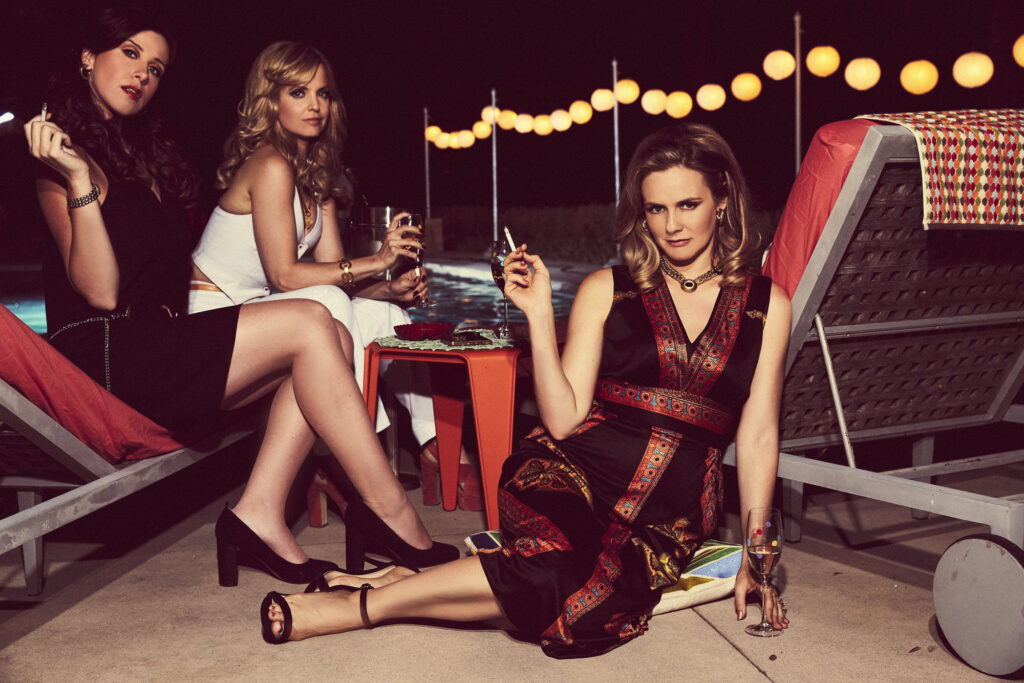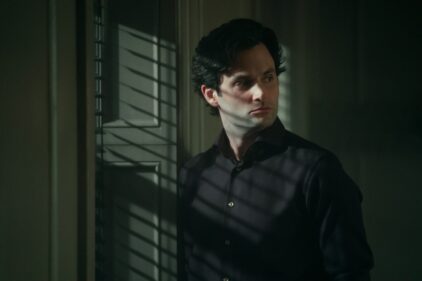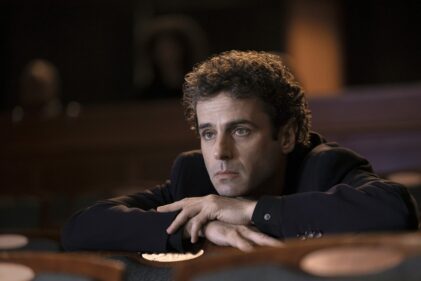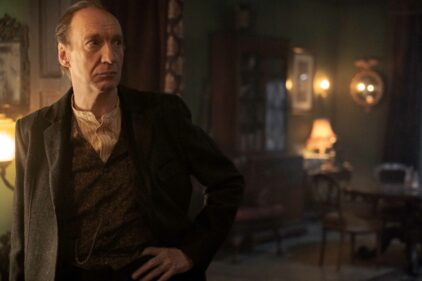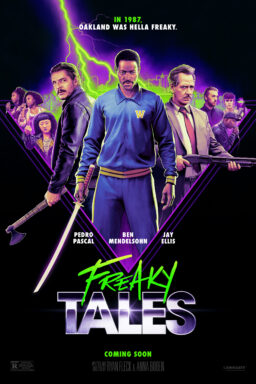If something seems impossibly light and airy, odds are it was hard as hell to pull off. Macarons. Sewing with tulle. Dancing en pointe. And hair, my god—making hair seem to defy gravity without seeming stiff is no easy task. It’s easy, when trying to replicate Farrah Fawcett’s feathered look, to cross over the boundary well past the point of no return. It may look light as a dream from a distance, but when done badly, if a person gets too close they’ll see those bangs and curls for what they are: crunchy, stiff, not a bounce to be found. The illusion of breeziness is gone. What’s left is evidence of artifice, and a strong smell of hairspray.
This isn’t a slight against the hair on “American Woman,” Paramount Network’s new Alicia Silverstone-fronted series. The hair is great. It’s the show itself that crosses over that line, seemingly more concerned with what it wants to be seen as than what it actually is. It’s as though the show keeps trying on different outfits—the inspiring single mom show, the intimate character drama, the biting Hollywood satire, the period piece, the feminist fairy tale—but never actually settles on one, and none of them really fit, anyway. Considering that the series is inspired by the childhood of one of its creators, that’s a real problem, and it renders the series stiff, unappealing, and frustratingly insincere.
Bonnie (Alicia Silverstone) is far from insincere. An aspiring actor who gave it up when she got pregnant, she’s following the script she’s supposed to follow—asking her husband (James Tupper) for money to plan his birthday party, since she doesn’t have money of her own; raising her daughters and putting dinner on the table, looking gorgeous and asking no questions. But when she discovers that her husband is cheating on her on the same day she finds out he’s in trouble with the law, she reclaims her independence, and with the support of her two best friends (Mena Suvari and Jennifer Bartels) goes about getting a job, letting go of the maid, and finding her way in the world.
It’s a story, according to Paramount’s marketing campaign, of the based-on-a-true variety: The childhood of actor and “The Real Housewives of Beverly Hills” star Kyle Richards. (It should be noted that Richards describes the show as “inspired by” her life with a single mother, rather than based on that period of her life.) The pedigree of the talent behind the scenes is no joke, but there’s been some turmoil as well. John Riggi (“30 Rock,” “The Comeback”) wrote the pilot script and was the show’s official showrunner; when he exited over creative differences, fellow executive producer John Wells (“ER,” “Shameless”) stepped up. Whether or not the switch affected what’s on display in these first three episodes, I can’t say. What I can say is that the result is an unsatisfying, lackluster vehicle for three performers who deserve more.
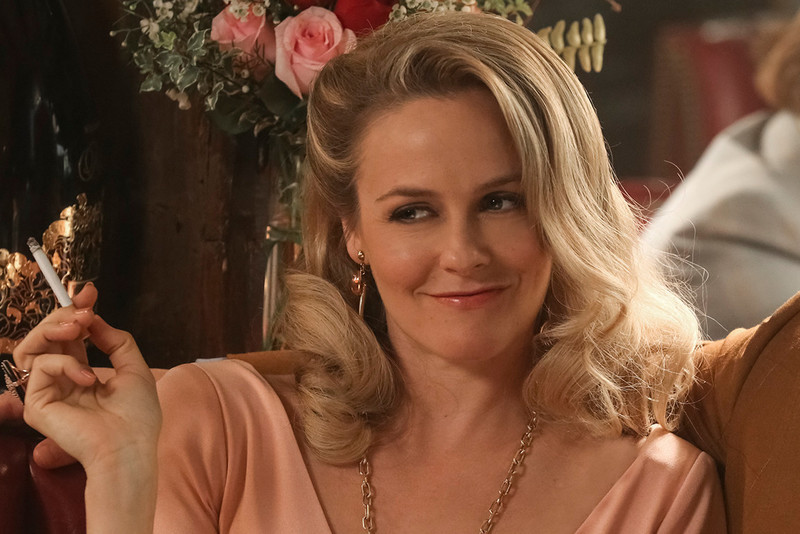
Bartels, Suvari, and especially Silverstone give this thing their all, and outside of some excellent costuming and the aforementioned great hair, they don’t get much in return. Some scenes are better than others, but it’s perhaps not a coincidence that many of the finest passages are either silent or bracingly direct. In the three episodes provided to critics for review, the best moment is totally wordless, as Bonnie stares into a mirror, reflected in another mirror, stripped of her expert coiffure and dramatic mascara. The moment goes on, longer than one expects, longer than another show might let it go on, but for those seconds, the story snaps into focus. Silverstone’s presence demands it, and an emotional life emerges.
There are similar moments—after spilling red wine on a handsome stranger, Bonnie asks a bartender for club soda and a towel, then after the faintest of pauses adds, “and a shot of vodka”; Bartels’ Diana angrily protests that she’s not boring, but with a flinch that betrays her fear over that very thing. But while all three of the actors are themselves engaging, the women they play are often dishearteningly superficial. Regardless as to the makeup of the writers room, it’s a series that feels as though no one on the production team has ever met or spoken to a woman.
They often speak in platitudes, careening toward declarations or punchlines one can see coming from a mile away. An encounter with an ex’s young paramour leads one of them to toss off a barb about bedtime. As Bonnie tells her friends she had to let her maid go, Kathleen (Suvari) asks who’s going to clean; when this is followed by the revelation that the gardener, too, was fired, Kathleen blurts out, “But who’s going to garden?!” Statement after statement sees these women declaring that no man can dictate who they’ll be, that no man can intimidate them, that no man can spoil their fun, but the series seems uninterested in actually showing how these beliefs grow, how they’re challenged, and what they mean. It’s t-shirt slogans as dialogue, and these women deserve better.
So do the women watching at home. It’s unclear who “American Woman” is for, whether the show’s producers are aiming to get caught up in the wave of shows and films tapping into the discontent and anger of women in the U.S. and elsewhere, or hoping to capitalize on the “Real Housewives” fanbase—and those things aren’t mutually exclusive, either. Whatever the goal, the result is the same: A sadly thin, tonally inconsistent series that’s unsuccessful as a comedy, off-putting as a drama, middling as a period piece and far too shallow to be anything resembling social commentary. At least it looks great—and as its lead would tell you, between declarations of independence, looking great is a requirement.

